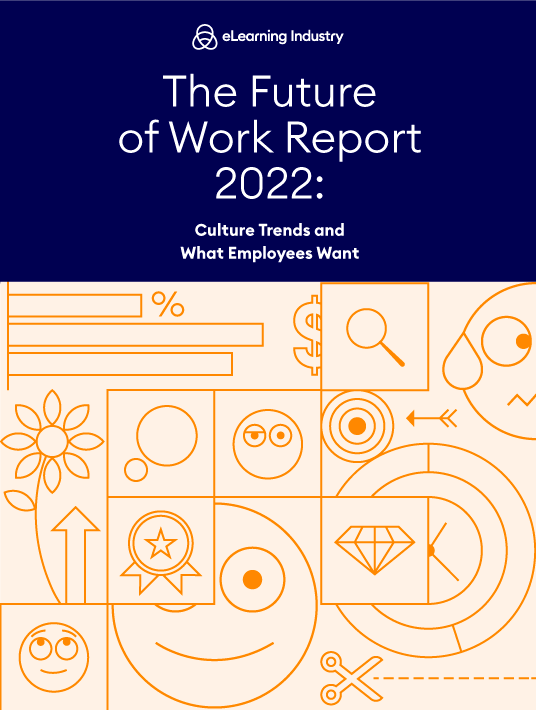Online Learning Will Foster Futuristic Inclusion
As the adoption of online learning increases around the world, it is likely common to link this pervasive method of study to the future of work. Like many industry experts have argued, the future of work does not necessarily suggest the takeover of jobs by machines, but the likely takeover of less human needed tasks by machines. Human involvement in the workplace will remain intricate in the future of work, but not without a price.

One thing to note is that those who will benefit the most from the dynamism and unimaginable possibilities in the future of work are those who have prepared themselves with the contemporary skills needed for the futuristic tasks ahead. Like Joe McKendrick noted in a Forbes contribution, artificial intelligence (AI) will replace tasks, not jobs. He further argued that instead of worrying about job losses, business executives can help reduce jobs that AI and machine learning can do. Therefore, people should rather spend more time on higher-level tasks.
Artificial intelligence and other robotic machines are expected to take up more tasks and duties in the future of work, and when they do, we should expect a vacuum of new skills needed to be filled. These skills could be around understanding and usage of the new automation, AI solutions, hybrid machines, and other improved digital solutions across various industries. A wider array of new skills will be needed to meet these demands.
Where Does Online Education Come In?
Taking reality into perspective, the ubiquity of the internet has made the transfer of new skills more feasible and convenient far across regions and continents. The understanding of new technologies can easily be done through online means of study, breaking the barrier of traditional learning in emerging technologies.
Already, online learning and other distance forms of education have shown a reasonable degree of acceptability and adoption of various digital and technology-based skills for formal education. In 2018 alone, an impressive number of 6,932,074 students enrolled in distance education courses in America’s degree-granting institutions.
The corporate sector is obviously not left behind as more than 40% of Fortune 500 companies are already using eLearning regularly and extensively, according to another Forbes report. Therefore, online education will arguably play an integral role in the future of work and aid the adoption of new digital technology skills. Online learning has demonstrated strong abilities and it is the preferred choice in acquiring new digital skills, as well as many other technical and soft skills.
As already known, online education enables you to study or teach from anywhere in the world. Hence, there is access to the internet and a computer set without the need to move from one location to another. This makes the transfer of skills more convenient and easily disseminated than in any other method of teaching. In the next decade or so, we should expect to see new hybrid machines, automation, digital technology solutions, while in parallel we should expect to see new online courses and virtual classes teaching these skills.
Furthermore, besides the fact that acquiring digital skills matches closely with a digital form of learning since both are digitally inclined and can happen virtually, the future of work will arguably drive more digital inclusion, as more automation and improved technologies will increase around digital technologies. This will make online learning imperative in the future of work, as more of these skills can easily be learned digitally and online.
Also, the ability to easily reskill and update such skills is another critical factor in the future of work. We should most likely expect more changes and advancements in various digital skills, including other industrial revolutions and innovations to come. However, the ability to easily update such skills, as frequently as needed, is another major factor, and here, the digital form of learning will play a big role. The idea is that when training is delivered online for self-paced learning or virtually through instructor-led support, it can easily be updated and disseminated as frequently as possible, as skills or technology updates. This dynamism buttresses another key benefit of online learning in the future of work, as online learning will help with the ease and convenience to rapidly update and transfer new skills.
Globalization: Online Learning And The Future Of Work
Rapid globalization and a decentralized global workforce system will also affect and play a huge role in the future of work. The attention on talents will shift significantly from proximity relevance to skill-based, as hiring managers will place more emphasis on identifying the right skills needed than the closest of skills by proximity.
This is already happening and it is evident in the increased number of businesses offering freelancing hiring services, where they connect businesses or people seeking remote service from a service provider. An example is Upwork, a business providing remote working opportunities, which has recorded over 18 million registered freelancers seeking remote/online job opportunities, with over 5 million registered clients seeking various services. Its main rival, Fiverr, has enjoyed a client (buyers) growth from 2.4 million buyers (clients seeking remote services) in 2019 to 3.4 million in 2020.
The big idea is that remote jobs are fondly associated with digitally inclined tasks. As the need for this increases, professionals and other service providers, including freelancers who have acquired various digital and other professional skills needed for remote job opportunities, will hugely benefit from the ubiquity of globalized futuristic job opportunities. We should expect to see more businesses hiring more permanent staff remotely.
What Is The Take-Home?
With the growing digitization, innovation, and improved technologies already happening, and those forecasted to happen, those who intend to be at the forefront of their careers must endeavor to engage in continuous learning to achieve this. As the future of work brings its complex and challenging tasks, those who are most skillful will likely exploit more on this opportunity and lead futuristic industries ahead.









